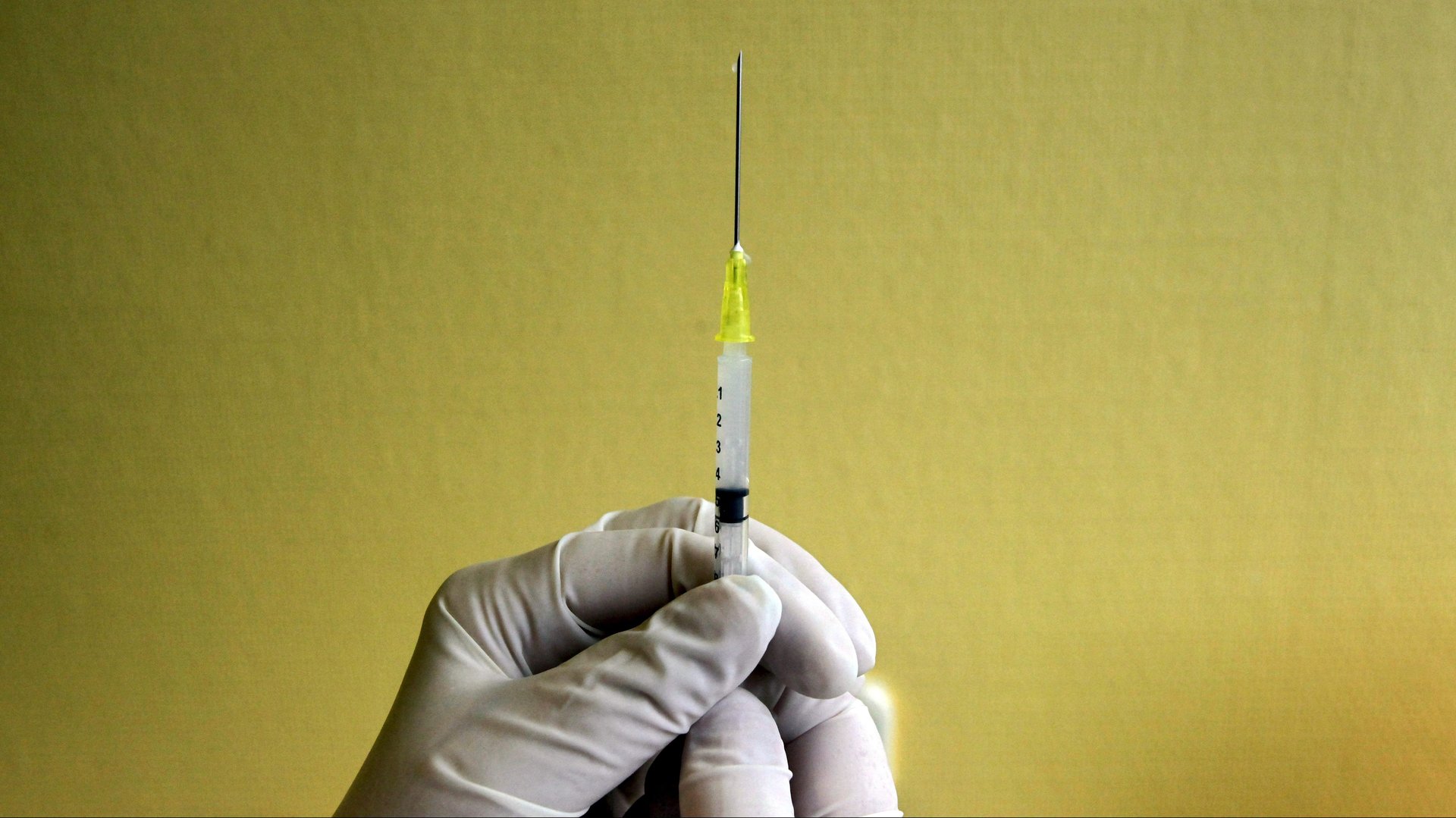Feeling sick after getting a flu shot is a normal (and even good!) thing
The intent of flu shots is to avoid the flu. We know this. It’s been drilled into our heads again and again. And yet, a little less than half of adults in the US got the routine jab for the 2018 to 2019 flu season. (This was actually a pretty high vaccination rate; in recent flu seasons, adherence has hovered around 40%.)


The intent of flu shots is to avoid the flu. We know this. It’s been drilled into our heads again and again. And yet, a little less than half of adults in the US got the routine jab for the 2018 to 2019 flu season. (This was actually a pretty high vaccination rate; in recent flu seasons, adherence has hovered around 40%.)
The reason for this shouldn’t be the cost—most insurance and Medicaid covers the flu vaccine as preventative medicine. Nor should it be convenience—the US passed a law in August allowing pharmacists across all 50 states to give flu shots. Instead, it’s the myth that the flu shot itself makes you sick.
Like most misconceptions that stick around, there’s a little truth to it. It’s normal to feel peaky—fatigued, achey, or warm with a low-grade fever—after getting a flu shot. “This is the robust immune response as the body’s creating antibodies, actual protection against the flu,” says Juanita Mora, an immunologist practicing in Chicago and volunteer medical spokesperson with the American Lung Association. It happens to about 10% of people who get the shot, she says.
In other words, feeling like you’re in the early stages of getting the flu is actually a sign that you’ll be protected from the actual virus. What you’re feeling is the body’s defense system gearing up.
Most versions of the flu shot are comprised of inactivated viruses, meaning they can’t actually infect your cells. Immune cells, though, fire off chemical alarms as soon as they notice any virus-like particle. They activate the innate immune system, a generalized response that tries to make the body unlivable for any potential pathogen. That inflammatory reaction can cause a bit of a fever or a tiny swollen lump near the injection site.
The fatigue you might feel comes from gearing up a more specialized immune defense. Tiny, specialized cells called B-cells create antibodies, which are cellular fighter pilots specific to each virus. Making these antibodies requires expending a little extra energy at first, but the payoff is future protection: Once they’re present in your plasma, the antibodies can patrol for future flu viruses.
It is possible to get sick after getting the flu shot, Mora says. But it wouldn’t be a result of the vaccine itself. If your body was in the early stages of fighting off another kind of infection, like a cold or strep throat, and then you get the shot, your B-cells can get overwhelmed. Instead of making antibodies to fight off the actual infection, they get pulled into making flu antibodies, which leaves you vulnerable to another ailment.
Additionally, it takes about two weeks for your body to whip its flu antibodies into shape; you could pick up a flu strain in the window between getting your jab and when protection kicks in. That’s why it’s important to make sure you only get a flu shot, or any vaccine, when you’re feeling healthy.
Not everyone notices these symptoms after getting the flu shot. But if you do seem a bit off, the feeling shouldn’t stick around for more than a day or two, and shouldn’t require a visit to your healthcare provider. If you do have a more severe reaction, it’s worth giving them a call—there could be something else going on.